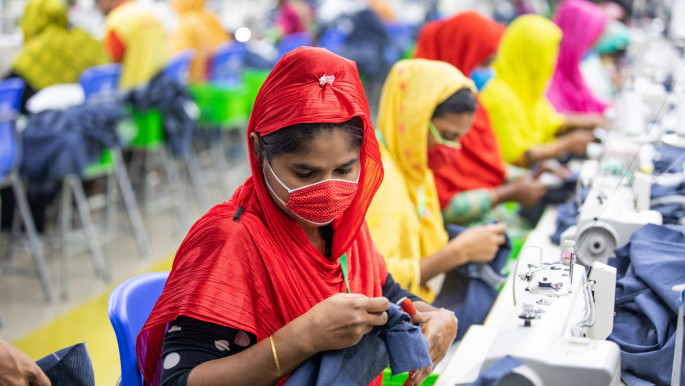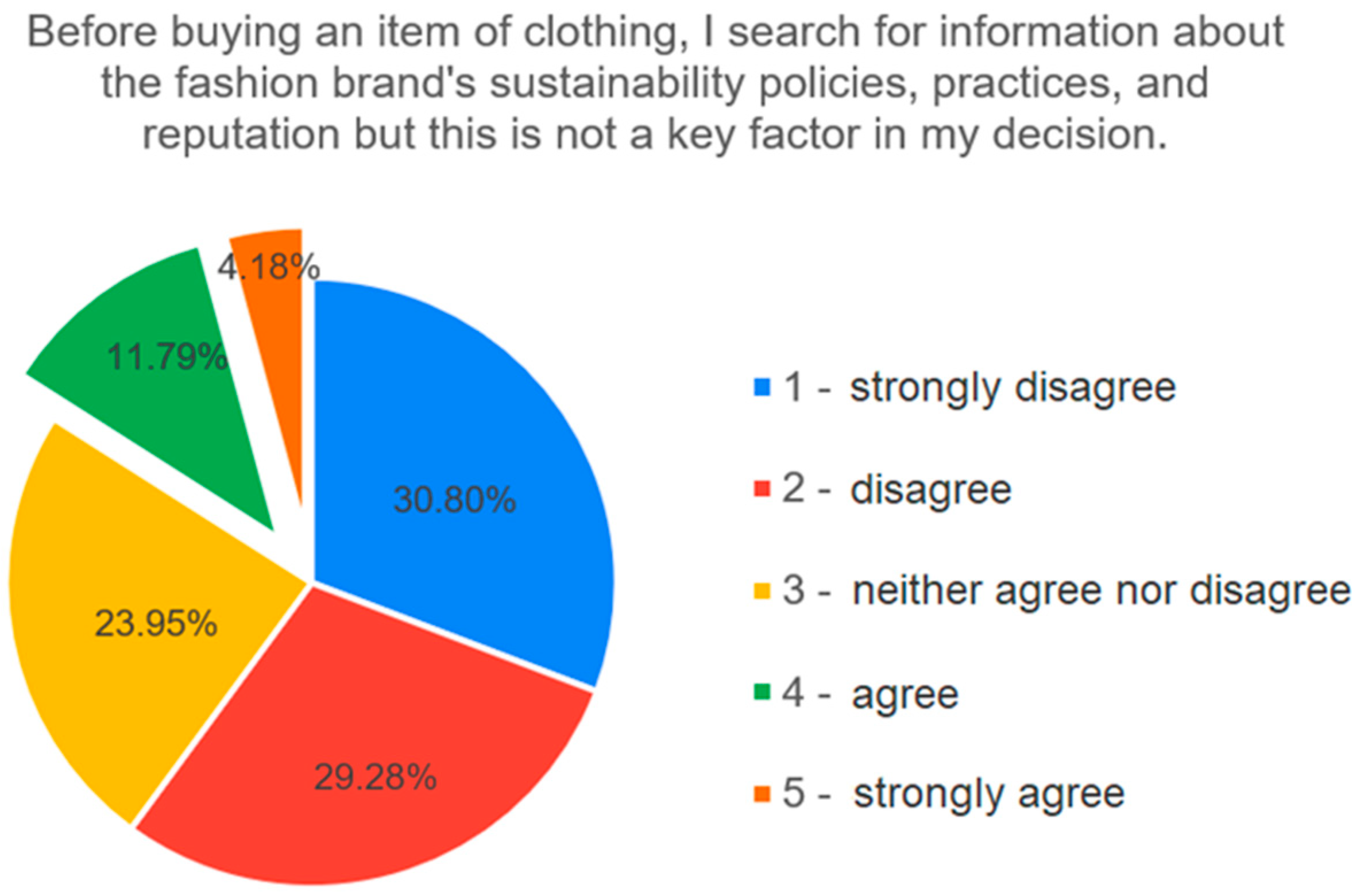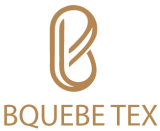Bangladesh offers unparalleled affordability and expertise in basic garment manufacturing. Buyers benefit from its robust supply chain and skilled workforce.
Known for its booming textile industry, Bangladesh has become an epicenter for sourcing basic garments. Boasting competitive pricing and quality production, it stands out as a top choice on the global stage. The nation harnesses a vast pool of skilled labor willing to work at lower costs compared to other countries, translating into significant savings for buyers.
With a long-standing reputation in apparel exports, buyers trust Bangladesh for reliable delivery and consistent quality. The country’s commitment to improving production facilities and adhering to international standards bolsters confidence among international clients. Suppliers frequently cater to large-scale orders, showcasing their capacity to meet global demands efficiently. For brands and retailers seeking a blend of affordability, reliability, and quality in their basic garment sourcing, Bangladesh’s textile sector is the go-to option.
Bangladesh’s Garment Industry Landscape
| Year | Exports (USD) |
|---|---|
| 2020 | 31 billion |
| 2021 | 34 billion |
| 2022 | 40 billion |
- Cost-effective production
- State-of-the-art factories
- Timely delivery

Credit: m.facebook.com
Cost-effective Production
Labor Cost Comparison
| Country | Average Labor Cost |
|---|---|
| Bangladesh | $0.50 – $0.60 per hour |
| Vietnam | $0.60 – $0.70 per hour |
| China | $1.00 – $1.50 per hour |
| India | $0.60 – $0.90 per hour |
Efficiency In Production
- Skilled workforce rapidly produces high volumes
- State-of-the-art factories utilize modern machinery
- Streamlined processes reduce turnaround times
Quality That Stands Out
High-quality Raw Materials
The foundation of any garment is its fabric. Bangladesh sources premium raw materials. Local mills supply top-notch textiles, crucial for quality attire.- Cotton: Sourced from quality producers ensuring sturdy and breathable fabrics.
- Synthetics: Utilized for stretch and durability in numerous garments.
- Blends: Combining fibers to create fabrics suitable for various uses.
Skilled Workforce
The country’s garment sector thrives on its vast pool of skilled labor. Workers in Bangladesh are adept in garment-making techniques. They ensure that each piece is crafted with precision. Continuous training improves their craftsmanship.- Attention to detail
- Consistency in production
- Expertise in various garment forms
The Fast Fashion Advantage
Swift Response To Trends
Bangladesh’s garment sector stands out with unmatched agility. As trends pop up, manufacturers activate swift production modes. This quick turnaround ensures retail shelves always showcase the latest styles. Here’s what makes Bangladesh exceptional:- Instant Trend Analysis: The local industry’s keen eye for global fashion developments means they can pivot without hesitation.
- Adaptive Supply Chains: With seamless coordination among mills and factories, adapting to new trends becomes effortless.
- Design to Delivery Speed: Rapid prototyping and sampling translate to faster fashion cycles.
Short Lead Times
Imagine your fashion line matching the pulse of the trendy streets without delay. Bangladesh offers that reality with short lead times. Buyers rejoice as inventories refill briskly, keeping them a step ahead. The foundations for this prowess include:| Factor | Impact on Lead Time |
|---|---|
| Efficient Workforce | Speedy production cycles maintain momentum. |
| Vertical Integration | Materials to manufacturing under one roof slashes delays. |
| Local Raw Material Availability | Minimizes dependency on imports, accelerating the process. |
Policy And Government Support
Favorable Export Policies
The government of Bangladesh has crafted export-friendly policies that significantly benefit garment businesses. These policies include tax holidays and financial incentives that reduce the operational costs for buyers. This makes purchasing basic garments from Bangladesh especially attractive.- No import duty on raw materials for export-oriented clothing.
- Cash incentives for exporters in the garment sector.
- Streamlined processes to ensure quick and efficient export of goods.
Investment In Infrastructure
Recognising the importance of the garments industry, investment in infrastructure has been a top priority. The government has made significant strides in enhancing connectivity and building specialized zones for the textile industry.| Area of Investment | Impact |
|---|---|
| Improved Roads | Quicker transportation of goods. |
| Port Facilities | Efficient handling of export and import. |
| Textile Hubs | Centralized resources for manufacturers. |
Capacity And Capability
Large Volume Handling
Bangladesh excels in managing significant volumes of garment production. Its expansive manufacturing base is equipped with state-of-the-art machinery, ensuring timely delivery of bulk orders. Factories here can scale up operations seamlessly to meet increasing demands, making large-scale sourcing a smooth process.- Consistent quality even at high volumes
- Robust infrastructure for mass production
- Timely fulfillment of sizeable orders
Diverse Product Portfolio
The diversity of Bangladesh’s garment industry is a key advantage for buyers. Offering a wide range of basic garments, manufacturers in Bangladesh cater to various market segments. From t-shirts to denim, suppliers maintain a versatile collection that aligns with global fashion trends.| Product Category | Variety |
|---|---|
| T-Shirts | Crew neck, V-neck, Sleeveless |
| Denim | Skinny, Straight, Bootcut |
| Sweatshirts | Pullover, Hooded, Zippered |
Compliance And Ethical Standards
Bangladesh has become synonymous with basic garment manufacturing, not just for its cost-efficiency but also for its commitment to compliance and ethical standards. International buyers find comfort in the country’s diligence towards maintaining a responsible production environment. Let’s uncover the pivotal aspects of workers’ rights, safety, and environmental considerations that make Bangladesh a standout in the global textile industry.
Workers’ Rights And Safety
The emphasis on workers’ rights and safety in Bangladesh’s garment industry is noteworthy. Significant strides have been made to ensure that labor laws are respected and work environments are secure.
- Fire and Building Safety Accord implemented to enhance safety measures
- Fair wages and overtime pay in accordance with labor laws
- Worker training programs to improve skills and safety knowledge
- Continuous inspection and auditing of factories
Environmental Considerations
The textile sector in Bangladesh takes environmental concerns seriously with:
| Initiative | Impact |
|---|---|
| Effluent Treatment Plants (ETPs) | Minimize water pollution |
| Reduced Water Usage | Conservation of resources |
| Green Factories | Eco-friendly operations |
Sustainable practices now stand at the core of operations for a growing number of Bangladeshi factories. This ensures not only a healthier planet but also garments produced with a conscience.
International Trade Agreements
Duty-free Access To Many Countries
Bangladesh enjoys duty-free access to a variety of key markets. This benefit stems from its status as a Least Developed Country (LDC). Countries and unions including the European Union, Canada, and Japan provide this preferential treatment. As a result, buyers can source garments at more competitive prices. Below are prominent trade privileges:- European Union: Duty-free under ‘Everything But Arms’ (EBA)
- Canada: Duty-free and quota-free under the ‘Market Access Initiative’
- Japan: Duty-free for LDCs, enhancing market entry
Bilateral Trade Relationships
Bangladesh has also forged bilateral trade relationships that benefit garment buyers. These partnerships aid in reducing tariffs and fortifying trade links. The country’s strategic bilateral treaties support a sustainable trade ecosystem. For example:| Country | Trade Agreement | Benefit |
|---|---|---|
| India | FTA Under SAFTA | Preferential tariffs |
| China | Duty-Free Trade | Zero tariffs for most products |
Innovation In The Industry
Adoption Of Modern Technologies
Bangladesh’s garment industry recognizes the necessity of keeping up with technological advancements. The adoption of modern technologies has led to:- Enhanced efficiency: Quicker turnarounds make meeting deadlines a breeze.
- Quality improvement: Consistent, high-standard products emerge as the norm.
- Cost-effectiveness: Automated processes reduce labor costs, offering better prices.
Research And Development
Continuous research and development (R&D) fortifies Bangladesh’s position in the global market. Key points include:- Commitment to innovation: Investments in R&D lead to groundbreaking fabric technologies.
- Customization capabilities: Unique product designs tailored to buyer needs become possible.
- Eco-friendly choices: Development of sustainable materials and practices is a top priority.
Supply Chain Strengths
Robust Local Supply Chain
Bangladesh boasts a comprehensive local supply chain that supports the garment industry from start to finish. The presence of numerous textiles mills, accessory suppliers, and garment factories means that all necessary components are readily available. This integrated network results in:- Consistency in quality of raw materials
- Enhanced coordination among suppliers
- Cost-effective production
Reduction In Lead Time
A key benefit of Bangladesh’s local supply chain is the reduction in lead time. This means buyers can expect:- Quicker turnaround from design to delivery
- Shorter cycles for bringing products to market
- Agility to respond to market trends
Market Responsiveness
Adaptability To Market Changes
Factories in Bangladesh can shift gears quickly. This flexibility means they can handle new trends fast. As fashion evolves, they keep up.- Fast turnaround on new styles
- Ready for seasonal shifts
- Efficient workflow that adapts to change
Customization Capabilities
Every buyer wants something special. Bangladesh delivers on this. They offer custom designs and tailored solutions.| Custom Feature | Benefit |
|---|---|
| Unique prints | Stand out in a crowded market |
| Specific cuts | Meet local style preferences |
| Varied sizes | Cater to diverse body types |
Why Bangladesh is the Best Choice for Buyers of Basic Garments

Socially Responsible Sourcing
Fair Trade Practices
- Bangladesh garment industry commits to fair wages and safe working conditions.
- Transparent operations foster trust among international buyers.
- Global Compliance certifications ensure adherence to ethical standards.
Community Upliftment
The impact of garment sourcing extends to local communities. The industry bolsters economic growth and empowers local populations. Here’s how Bangladesh makes a difference:| Community Aspect | Impact |
|---|---|
| Education Programs | Increases literacy and skills among the workforce. |
| Healthcare Access | Improves overall well-being and productivity. |
| Women Employment | Promotes gender equality and family support. |
Navigating Challenges
Crisis Management
In the face of adversity, Bangladesh’s garment sector shows remarkable resilience. With a robust crisis management framework, factories quickly adapt to changes. This agility assures continuous supply, even during global disruptions.- Disaster preparedness plans in place
- Rapid response to market demands
- Strengthened supply chain mechanisms
Strategies For Sustainability
Commitment to sustainability is key in Bangladesh’s garment industry. Eco-friendly practices are increasingly adopted, making it a smart choice for conscious buyers.| Sustainability Focus | Benefits |
|---|---|
| Use of organic materials | Reduces environmental impact |
| Energy-efficient production | Lowers carbon footprint |
| Waste reduction techniques | Enhances resource efficiency |
Testimonials And Success Stories
Global Brands’ Experience
International fashion labels are unanimous in their praise. Bangladesh stands out for its cost-effectiveness, quality manufacturing, and timely deliveries, securing its position as a go-to source for apparel essentials.| Brand | Feedback |
|---|---|
| HM | “Efficiency and reliability make Bangladesh our choice for basics.” |
| Zara | “The commitment to quality in Bangladesh is unmatched.” |
| Uniqlo | “Bangladesh delivers excellence, meeting our high standards.” |
Impact Stories From The Field
The real change can be seen in the lives of the workers and communities thriving around the garment sector. Their stories reveal the positive ripple effect that comes with every order placed in Bangladesh.- Lifetime skills acquired by workers.
- Improved living standards in garment-making areas
- Communities benefiting from employment opportunities.
Future Outlook
Predicted Market Growth
The garment industry in Bangladesh stands on the threshold of extensive expansion. Economic indicators suggest a steady climb in its global market share. This predicted growth is not coincidental; it’s the result of strategic planning and the country’s commitment to maintaining its status as a top garment producer.- Capacity enhancement: Factories expand to fulfill large orders.
- Investment in technology: Automation increases production efficiency.
- Government support: Policies favoring the garment sector’s growth.
Evolving For The Future
Bangladesh is not resting on its laurels. It’s transforming its basic garment sector to meet future challenges. Sustainability, ethical practices, and innovation lead this evolution.| Focus Area | Description |
|---|---|
| Sustainable Practices | Adopting eco-friendly methods and materials. |
| Workers’ Welfare | Improving working conditions and rights. |
| Adaptive Strategies | Embracing change for product and process innovation. |

Credit: www.mdpi.com
Competitive Comparisons
Bangladesh Vs. Other Textile Hubs
The textile industry is fierce, with many countries vying for the top spot. Comparing Bangladesh with rivals, it emerges as a leader. Key factors make it the go-to destination for garment sourcing:- Cost-Effectiveness: Competitive labor costs ensure affordable production.
- Quality: Despite low costs, the quality remains high.
- Capacity: Large-scale production meets global demand.
- Speed: Timely order fulfillment is a staple of Bangladeshi factories.
- Policy Support: The government offers incentives to boost exports.
| Country | Labor Cost | Production Capacity | Government Support | Lead Time |
|---|---|---|---|---|
| Bangladesh | Low | High | Strong | Short |
| China | High | High | Variable | Short |
| India | Medium | Medium | Improving | Medium |
| Vietnam | Medium | Medium | Improving | Medium |
Unique Selling Propositions
Bangladesh’s textile sector isn’t just about cost-advantage; its unique selling propositions (USPs) elevate its standing:- Sustainability Focus: Eco-friendly practices gain more spotlight.
- Specialized Workforce: Skilled labor drives excellence in production.
- Strategic Location: Proximity to raw materials and key markets.
- Compliance: Adherence to international labor and safety standards.
Making The Right Sourcing Decision
Assessing The Total Cost Of Ownership
Considering every cost associated with your garment sourcing is crucial. Bangladesh’s garment industry excels in providing competitive pricing without compromising on quality. Let’s break down the total cost of ownership:- Material Costs: Access to affordable, quality materials keeps production costs down.
- Labor Costs: Skilled yet economical workforce available.
- Operational Costs: Efficient production facilities reduce utilities and overhead.
- Shipping and Handling: Strategic location offers cost-effective logistics solutions.
Partnership And Collaboration Opportunities
Bangladesh’s garment sector is not just about transactions; it’s about building relationships. The industry is ripe with opportunities for partnership and collaboration. Outcomes are better when buyers and manufacturers work together:- Nurturing relationships with suppliers ensures priority treatment and flexibility.
- Cultural insights and local market intelligence can lead to more informed decisions and innovation.
- Customized production runs are possible thanks to a responsive industry.
Frequently Asked Questions For Why Bangladesh Is The Best Choice For Buyers Of Basic Garments?
Why Is Bangladesh Such A Popular Destination For Manufacturing Clothing?
Bangladesh is popular for clothing manufacturing due to its low labor costs, skilled workforce, and well-established textile industry infrastructure. The country also offers competitive export policies and has a proven track record in mass garment production.
What Are The Advantages Of Bangladesh Textile Industry?
The Bangladesh textile industry boasts low labor costs and abundant skilled workers. It has a robust cotton production and a growing manufacturing infrastructure. Government incentives and free trade agreements benefit the sector. The industry’s rapid growth enhances its global competitiveness.
What Is The Importance Of Garment Industry In Bangladesh?
The garment industry is vital to Bangladesh’s economy, significantly contributing to its GDP and export earnings. It creates millions of jobs, boosting the socio-economic status of its workforce, especially for women.
Why Do Countries Like Bangladesh Have A Comparative Advantage In Making Garments?
Bangladesh has a comparative advantage in garment production due to low labor costs and a skilled workforce specializing in textiles. These factors contribute to competitive pricing and attract global fashion brands.
Why Choose Bangladesh For Garments?
Bangladesh’s garment industry is known for its competitive pricing, skilled workforce, and high production capacity, making it a top choice for buyers.
What Makes Bangladeshi Garments Cost-effective?
Bangladesh offers lower labor costs and efficient production processes, allowing for more affordable garment manufacturing compared to many other countries.
Are Bangladeshi Garments Quality Competitive?
Yes, Bangladeshi manufacturers adhere to strict quality standards, offering products that are often comparable to those produced in more developed countries.
How Is Bangladesh’s Lead Time In Garment Production?
Bangladesh boasts efficient turnaround times due to its large, dedicated garment production workforce and streamlined supply chain management.
Can Bangladesh Handle Bulk Garment Orders?
With a robust manufacturing infrastructure, Bangladesh can efficiently manage and fulfill large-scale garment orders, maintaining quality and delivery timelines.
What Types Of Garments Does Bangladesh Specialize In?
Bangladesh specializes in basic garments such as T-shirts, trousers, knitwear, and sweaters, often produced at a high volume and with cost efficiency.
Conclusion
Bangladesh stands tall as a hub for basic garment procurement. Its amalgamation of cost-effectiveness, superior quality, and timely delivery is compelling. Forward-thinking buyers prioritize this powerhouse for their textile needs. Exploring partnerships with Bangladeshi manufacturers is a strategic move for any savvy business in the apparel industry.
Choose Bangladesh, where value meets quality.
